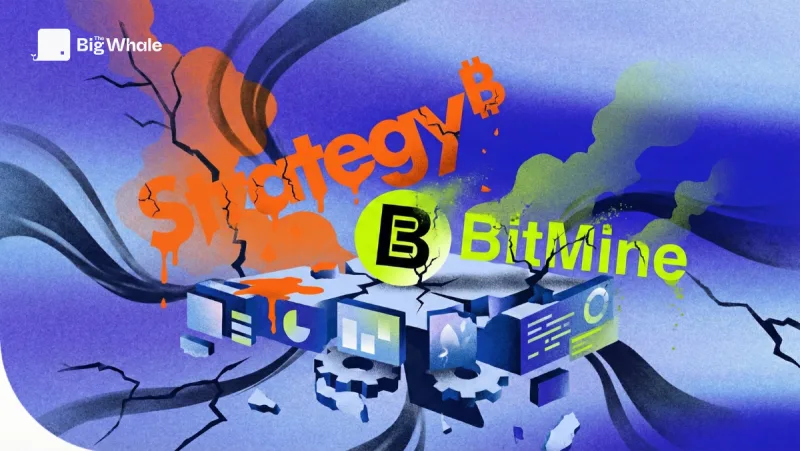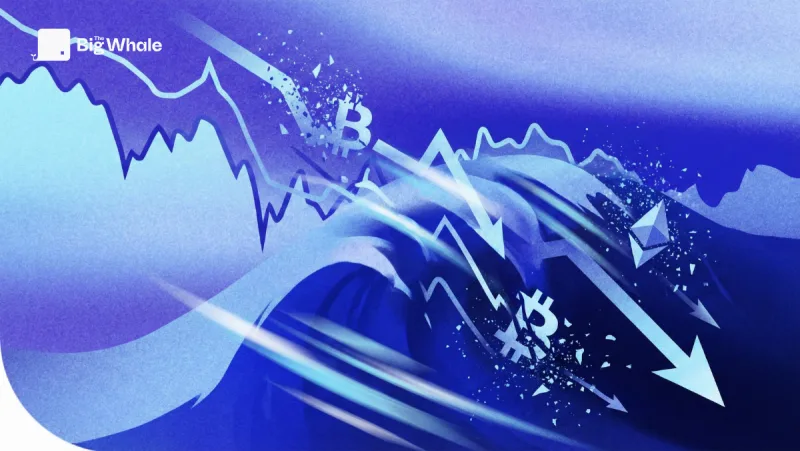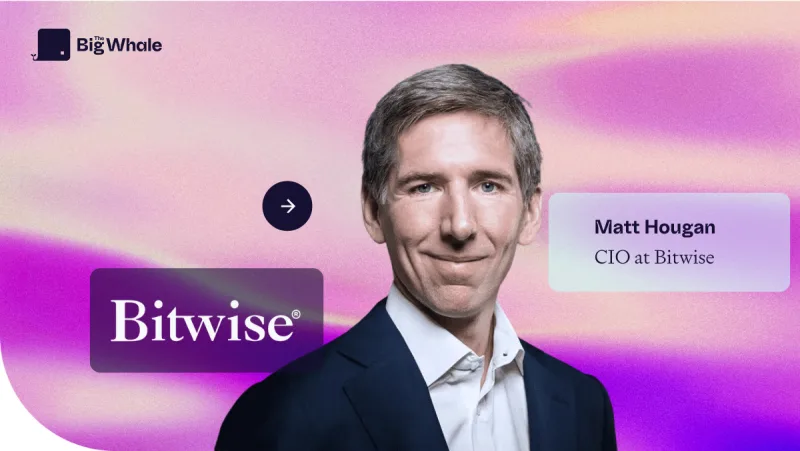TBW - Konstantin Richter (Blockdaemon): "Demand from US banks has tripled in just a few months"
"Demand from US banks has tripled in just a few months"

The Big Whale: You're used to saying that Blockdaemon is "the biggest crypto company no one has heard of". Why?
Konstantin Richter: Because I think that's what defines us best. In the space of just a few years, we've become one of the heavyweights in the sector without increasing our profile. We're one of the biggest players in this industry and a lot of people don't know us. This is rather logical since we only work with companies and financial institutions, so the general public is not involved.
What services do you provide?
We operate around three pillars.
The first is nodes. This is our core product, which includes APIs and allows any of our customers to interact with blockchains (including transaction validation).
Then we have a white label staking offering. We don't offer a staking product for individuals, but we do supply large companies such as Pantera, Paradigm, Fidelity, eToro, Robinhood and many others.
Finally, we have a complete wallet business that allows us to equip any company.
Our goal is to allow any company to become a crypto platform like Coinbase. Our technology enables any institution to offer crypto buying, selling, custody and remuneration services.
How many institutional customers do you have?
A lot. Of the top 500 global companies offering crypto services, 70% of them are our clients.
Is this relationship exclusive? For example, does Fidelity only work with you or with other providers?
It depends. We don't have any real direct competitors, because our offering is fairly unique. Our closest competitor would probably be Fireblocks.
We see our technology stack through the prism of the wallet: everything that activates, creates value and enables transactions around the wallet.
Fidelity, for example, only uses our services for their transaction and data nodes. In general, most companies work with a single provider for nodes, and one or two options for wallets and staking.
Who are your main customers?
We work with JP Morgan, Goldman Sachs, Citibank, Fidelity, PayPal, Robinhood, Binance, Coinbase, Kraken...
You have raised half a billion dollars and are valued at between 3 and 4 billion. Who are your major shareholders?
We're the only crypto company with three of the top ten financial institutions as major shareholders: Goldman Sachs, JP Morgan and Citibank.
What's your view on regulatory developments in the US and their potential impact?
We're very optimistic. It's already been a game changer for us. We're the only infrastructure provider based in the US (San Francisco, ed.), which is a major advantage when many other companies have left the country in recent years.
With the end of the SAB 121 accounting rule, which prevented banks from holding Bitcoin on behalf of their customers, demand from US banks for crypto services of this type has tripled in just a few months.
And in Europe and Asia?
Asia is our biggest market. We grew a lot there while the US was struggling. Europe has always been slower, mainly because financial institutions are more risk averse and venture capital funds are less active there. I hope that the fact that the US has changed gear will push Europe to move too.
Are you not worried that institutions like Fidelity or BlackRock will develop their own staking solutions and that banks will have their own wallets? That would be a threat to your model, wouldn't it?
No, because we already provide them with these white-label solutions. They prefer to outsource to avoid operational responsibility and benefit from our economies of scale. It's exactly the same as with the Cloud. Why have your own infrastructure when you have Amazon or Google doing it very well?
In terms of security, how do you ensure the reliability of your services?
We invest heavily in security, particularly with our portfolio (MPC, editor's note) that we developed ourselves. Security is our absolute priority.
What is missing today to see mass adoption by financial institutions?
Mainly regulation. Institutions need a clear legal framework. With the new regulations, we expect mass adoption within 12 to 18 months. The movement has started, but it's going to take some time for it to reach full strength. B-to-B markets don't work like B-to-C markets.
What are your goals for 2025?
Essentially to work with the big banks in the United States. There is a huge amount to be done with them in terms of equipment. They need to serve their millions of customers and we're going to help them. We're also going to invest in Europe and launch new staking products.
How many employees do you have?
A total of 200. There are 70-80 people in Europe, 80-100 in the US, and 20-30 in Asia.
Is an IPO planned?
It's a possibility. We want to offer liquidity to our investors and employees, so an IPO could make sense. Potentially in 2026. In the meantime, our company doesn't need capital, so we'll be looking at all options, including tokenised share models.



